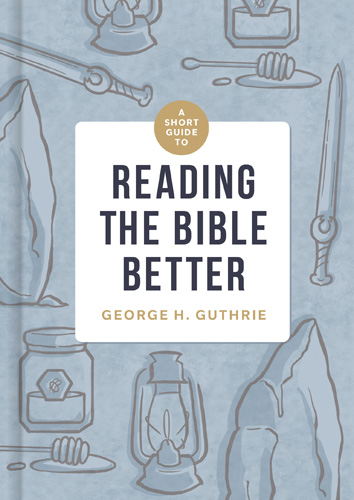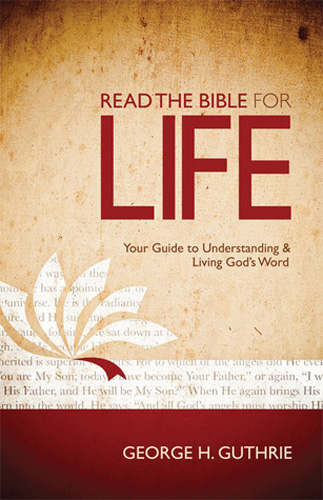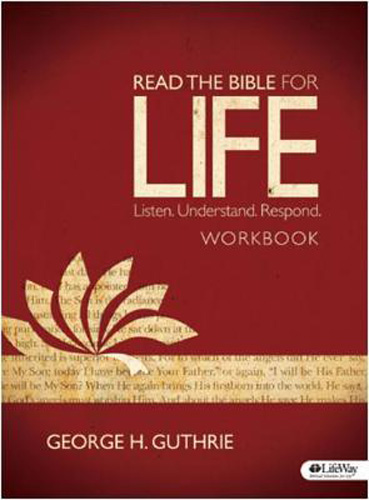Reading The Bible Better
Number of lessons: 10
Total length: 4 hours 40 minutes
format: Video and Audio
About This Class
You and I need to embrace the powerful, beautiful, life-giving words of God on a regular basis. Various surveys in different cultures, over the past half century, have determined that the number one predictor of a person’s spiritual health is the regular practice of personal Bible reading. Nothing else comes close. If our purpose in life is to live for him and to his glory, and the Scriptures shape us for his mission, then God’s Word provides us with a means to that very desirable end.
Everything else in our lives is shaped by whether or not we are living out of a life grounded in the Word of God, the Bible. We need to read it and read it better than we ever have before, so that we can live it well. As we thrive in the Word of God, knowing and living the Scriptures, we have the...
More
About the Professor
George Guthrie
Lessons
- 0% CompleteDive into this lesson to gain a deep understanding of how to read the Bible better, focusing on hearing scripture accurately, personal transformation, the grand story, and reading in community, while fostering a sense of joy and wonder in your journey.0% Complete
- 0% CompleteDiscover the power of words, their impact on our lives, and how God's words and communication in the Bible provide guidance, shaping us to live with purpose and spiritual growth.0% Complete
- 0% CompleteBeing receptive to what God is saying to you in the Bible is an important part of reading the Bible better. The parable of the sower gives you a word picture of obstacles you face in attempting to cultivate a receptive heart.0% Complete
- 0% CompleteBy embracing receptivity, you can overcome barriers and enhance your understanding of the Bible, ultimately leading to personal growth, stronger relationships, and deepened faith.0% Complete
- 0% CompleteIn this lesson, you learn about literary context's importance in interpreting the Bible, identifying literary genres and structures, and applying context for accurate exegesis and application.0% Complete
- 0% CompleteBy understanding historical context, you can better interpret the Bible, considering cultural, social, and geographical backgrounds, ancient literary genres, and archaeology to bridge the gap between the past and present.0% Complete
- 0% CompleteThis lesson provides you with knowledge on the importance of Bible translations, their types, and the criteria for selecting the most suitable one for your needs while also offering insights into their historical development.0% Complete
- 0% CompleteYou will learn to identify and interpret various biblical genres, enhancing your understanding of the Bible and applying its teachings more effectively in your life.0% Complete
- 0% CompleteBy entering the story when reading the Bible, you enrich your understanding, connect with biblical characters, and foster personal spiritual growth, Bible study, and teaching skills.0% Complete
- 0% CompleteIn this lesson, you gain insights into biblical interpretation principles, like context and genre, and explore essential tools such as translations and commentaries, leading to better understanding and application of the Bible.0% Complete
Class Resources
Recommended Books
A Short Guide to Reading the Bible Better
A Short Guide to Reading the Bible Better
The number one predictor of a person's spiritual health is the regular practice of personal Bible reading. ÂBut this is precisely the point where many Christians...

Read the Bible for Life: Your Guide to Understanding and Living God's Word
Read the Bible for Life: Your Guide to Understanding and Living God's Word
The Bible may be the most-purchased book in the world, but it is often the least read and least applied due to a basic lack of understanding and motivation on the part of...

Read the Bible for Life - Workbook: Listen. Understand. Respond
Read the Bible for Life - Workbook: Listen. Understand. Respond
Read the Bible for Life - Workbook by George Guthrieis a participant's guide to a whole-church approach to greater biblical literacy. This study equips individuals and...

About Biblical Training
BiblicalTraining wants every Christian to experience a deep and loving relationship with Jesus by understanding the life-changing truths of Scripture. To that end, we provide a high-quality Bible education at three academic levels taught by a wide range of distinguished professors, pastors, authors, and ministry leaders that moves from content to spiritual growth, all at no charge. We are a 501(c)(3) non-profit funded by gifts from our users. We currently have over 180 classes and seminars, 2,300 hours of instruction, registered users from every country in the world, and in the last two years 1.4 million people watched 257 terabytes of videos (11 million lectures).
